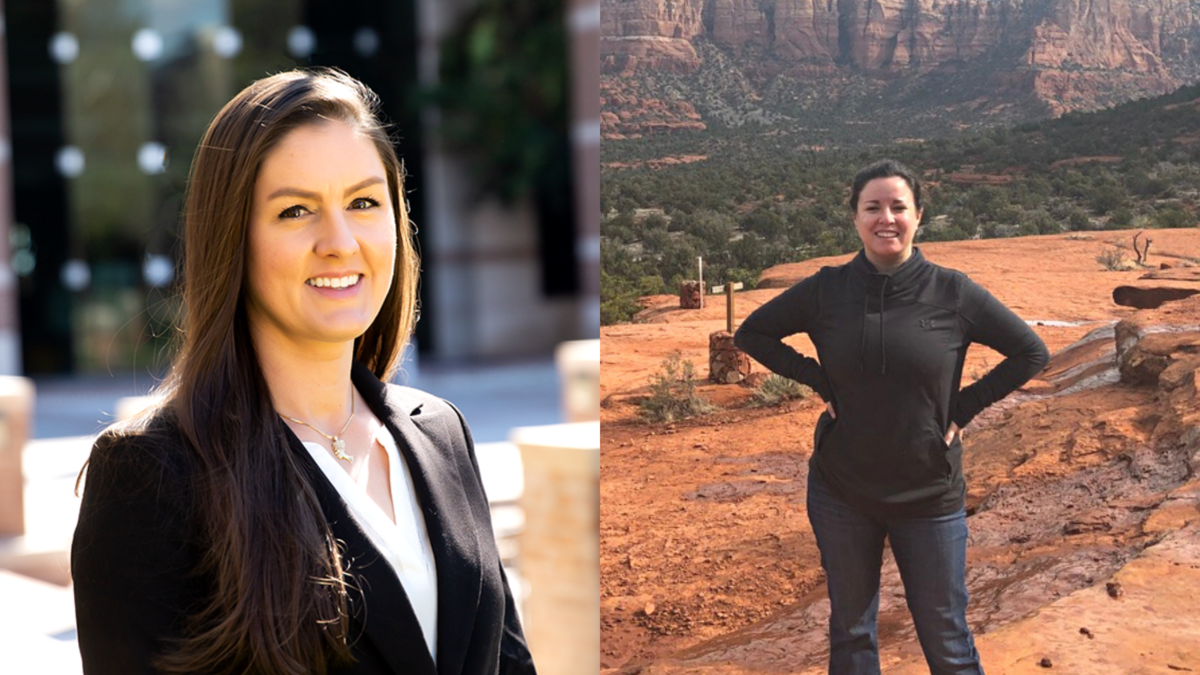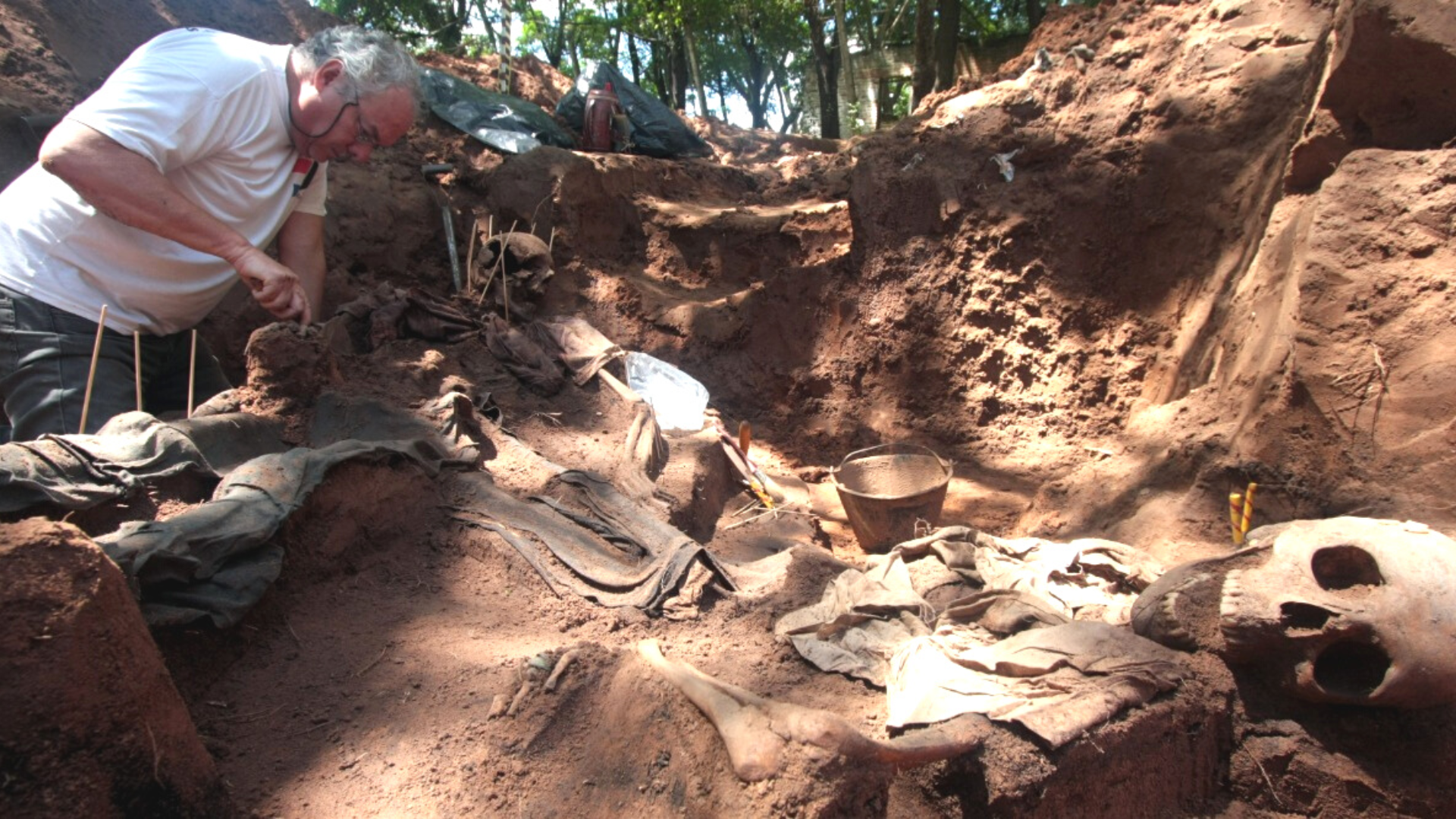'They are our parents': ASU faculty awarded grant to aid in excavation of Paraguayan mass grave

Assistant Professor Katelyn Bolhofner (left) and Assistant Teaching Professor Adriana Sartorio (right) of Arizona State University were recently awarded a grant from the Humanitarian and Human Rights Resource Center to support their project “They Are Our Parents.” Photo courtesy the New College of Interdisciplinary Arts and Sciences
For decades, hundreds of families across South America have lived in the shadow of Operation Condor, a 1970s-era campaign of political repression that led to the disappearance and murder of an estimated 60,000 individuals in South America. As of 2019, 37 bodies out of around 400 of the murdered individuals were recovered in Paraguay. Only four of those found have been identified so far.
This summer, two forensic science faculty members from Arizona State University’s New College of Interdisciplinary Arts and Sciences will travel to Paraguay to aid in the excavation of a mass grave containing victims of Operation Condor in Lambaré, Paraguay.
The faculty members, Assistant Professor Katelyn Bolhofner and Assistant Teaching Professor Adriana Sartorio, were recently awarded a grant from the Humanitarian and Human Rights Resource Center to support their project “They Are Our Parents.”
“They Are Our Parents” was one of four projects that was funded by the HHRRC for 2023 to promote research, training and on-the-ground support of global humanitarian and human rights efforts that employ diverse forensic approaches. The projects are funded collaboratively by the National Institute of Justice’s Forensic Technology Center of Excellence and the American Academy of Forensic Sciences.
Bolhofner, Sartorio and a graduate student researcher will implement an anthropological approach to the excavation in an effort to locate, identify and repatriate the victims. The team will perform biological profile and trauma assessments of the exhumed individuals, excise samples for future DNA analysis and use a portable digital radiography machine to explore the potential of obtaining positive identifications through means other than DNA comparisons.
The project will not only provide aid to the Paraguayan humanitarian organizations but will also assist local organizations in obtaining independence in their efforts to conduct their own forensic investigations and identifications by establishing local expertise in forensic anthropology and archaeology.
On the ground in Lambaré they will collaborate with Rogelio Goiburú, a retired doctor of medicine who has dedicated years of his career to locating and excavating mass graves in Paraguay in order to find his father. As the director of the Justice Ministry’s Department for Historical Memory and Reparation, he also leads efforts in identifying other victims.
Finding at the Specialized Military Group location, 2013. Photo by Hugo Valiente from the archive from the Historical and Reparation Memory Directive
For Sartorio, who is originally from Paraguay, this project hits especially close to home.
“I am doing it for my father and people who went through what he went through,” Sartorio said. “He was affected by the dictatorship at such an early age when he was incarcerated. His family and friends were affected one way or another. These actions are hard to forget, especially when the loss of friends during Operation Condor was a marking point in your life. I can't even imagine losing your teenage innocence and needing to leave your country to escape further penalties. My personal connection is something driven from a long time ago and it’s finally getting heard.”
Long term, the team hopes to continue this work to bring closure to the families who lost loved ones, many of which have had unanswered questions for years.
“I became an anthropologist because I love people's life stories,” Bolhofner said. “For me, this project is so significant because I have the opportunity to use my skills and training to help tell these stories — which is really what I love about my job in all contexts. But in this context, where these stories have been silenced very intentionally, the opportunity to assist in bringing those individuals' life stories back, in giving them back their names, giving them back to their family, is really what drives me as a forensic anthropologist.”
More Science and technology

ASU-led space telescope is ready to fly
The Star Planet Activity Research CubeSat, or SPARCS, a small space telescope that will monitor the flares and sunspot activity…

ASU at the heart of the state's revitalized microelectronics industry
A stronger local economy, more reliable technology, and a future where our computers and devices do the impossible: that’s the…

Breakthrough copper alloy achieves unprecedented high-temperature performance
A team of researchers from Arizona State University, the U.S. Army Research Laboratory, Lehigh University and Louisiana State…


